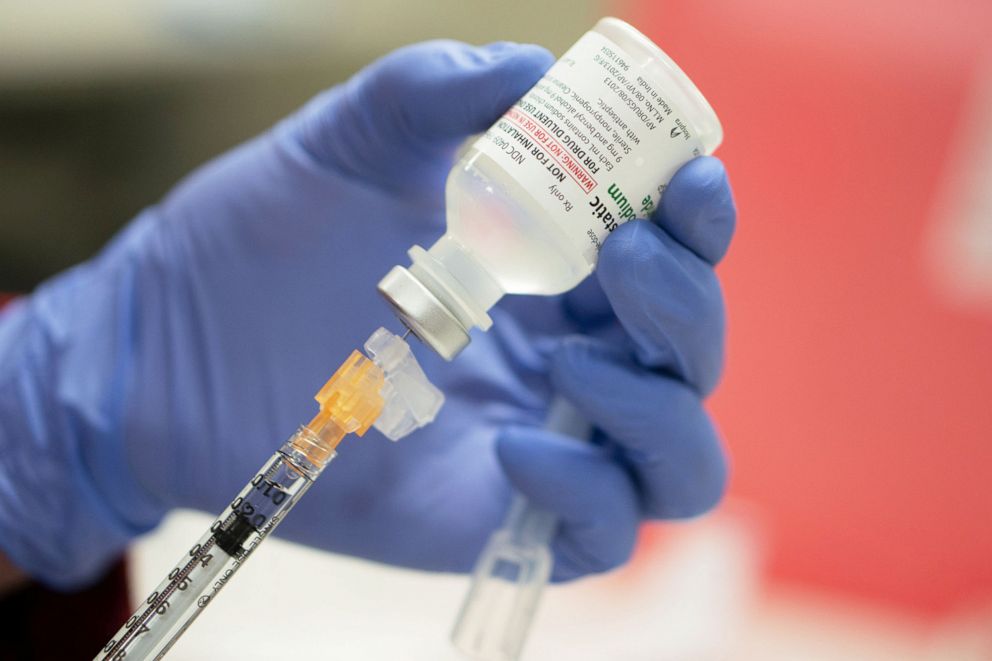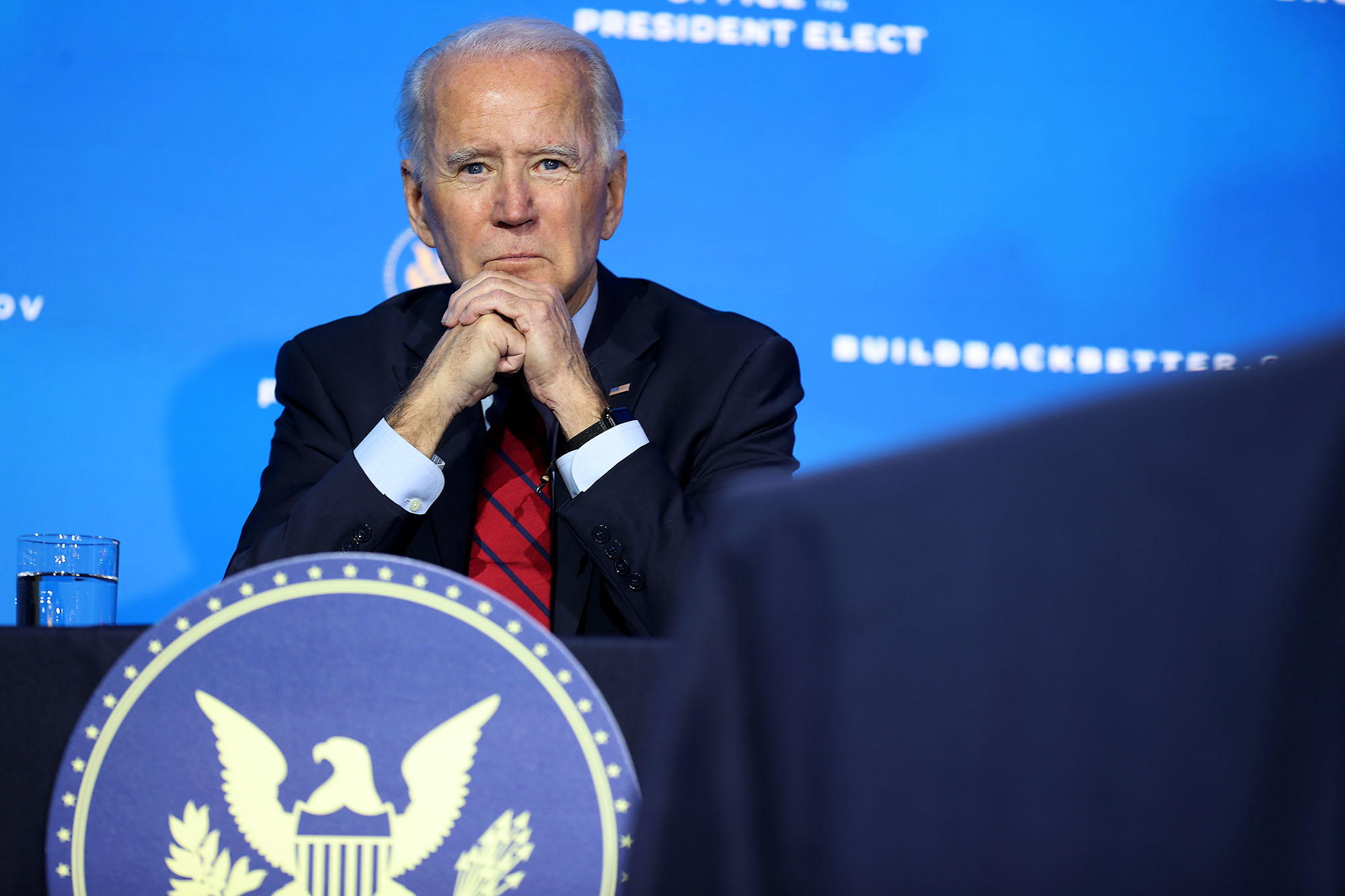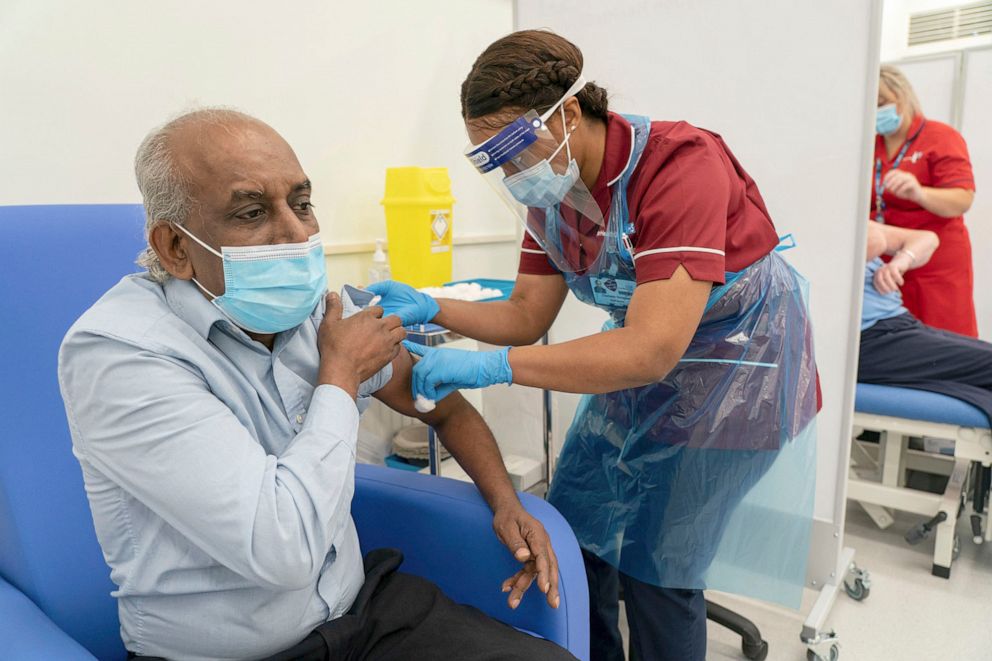The challenge of selling the COVID-19 vaccine amid divisive politics: ANALYSIS
"There is a risk that COVID vaccines could become the new masks."
It has become a mantra of sorts for the Biden transition team: "Vaccines don't save lives, vaccinations do." The idea is a powerful acknowledgement of the daunting task in front of the nation and incoming administration next year.
Once approved and manufactured, getting these shots into people's arms will be a logistical undertaking so big it is hard to fathom. More, reassuring and persuading people to get in line for the new vaccine, after a transition in the White House and with rampant mistrust and misinformation in our politics, could be another challenge next year for President-elect Joe Biden and public health officials.
The vaccine has long seemed overly politicized. At the same time President Donald Trump was dismissing and downplaying the disease, he was laser focused on the vaccine. His statements about how his vaccine could be ready before Election Day left prominent Democrats skeptical and leery.
But now, the timing of the vaccine's anticipated approval and rollout, so close after the election, has arguably flipped the politics of it all. Millions of new vaccines may be ready for distribution next spring and summer. In Washington, some leaders are worried about whether Biden and his administration will be able to sell the science in Trump country.
"We have gone through a period where COVID-19 vaccines have been so politicized, it is not surprising that people are both confused and hesitant," Larry Levitt, executive vice president for health policy at the Kaiser Family Foundation, told ABC News.

"Red America may all of a sudden be more hesitant to take a vaccine under a Biden administration, particularly for a disease that Republican leaders have been dismissing for months. There is a risk that COVID vaccines could become the new masks," he added. "But I also think people are desperate to get back to normal and these vaccines are what will enable us to."
Over the last few months the political divide over basic safety measures has reached new extremes. According to USA Today, at least 81 state and federal government officials have tested positive for COVID-19 since the beginning of September -- nearly three out of four are Republican.
"Taking their cues from President Donald Trump, Republicans at every level of government have flouted public health guidelines to reduce the risk of catching and spreading the coronavirus," the article reads.
Though Trump has thumbed his nose at other health precautions, he has for months championed future vaccines as the way to open the economy.
Levitt referred to the possible issue of "vaccine hesitancy" as a "temporary challenge." He said that once the FDA finishes its final approval and people see their neighbors receiving vaccinations, the worry felt in this moment would change.
He added that trusted messengers will be key.
"It is going to be important that people in the Black community, Latino community and conservative, rural parts of the country are out there communicating to people that the vaccines are safe. It can't just be the Biden administration," he said.
Centers for Disease Control and Prevention Director Robert Redfield has said too that community leaders will be vital. Last week, he asked business and government leaders to help encourage people to take the vaccines. The CDC is even prepping stencils for stickers and buttons to add visibility around those who have been vaccinated and the Department of Health and Human Services is working on a TV campaign.

Some public health experts have even talked about whether Biden should change the name of Operation Warp Speed when he takes office. One-in-three Americans told Gallup that their main concern was how fast the vaccine was developed and the name of the government program alone -- not-so-subtly -- reminds people of it.
"We have been in this pandemic for less than a year, and development of COVID-19 vaccines has been on an accelerated timeline. It's natural for people to be suspicious of things they don't know about," Dr. Susan Bailey, president of the American Medical Association told ABC News.
Back in September, Pew Research Center found that Republicans were significantly less likely to say they would "definitely" or even "probably" get the vaccine. Black respondents too expressed serious concerns.
Washington Post opinion columnist Alyssa Rosenberg wrote earlier this month that Biden and Vice President-elect Kamala Harris should consider receiving their vaccinations live on TV.
"In particular, Black Americans, wary of a medical system that has sometimes abused them and continues to provide them with lower-quality care, are highly skeptical," Rosenberg wrote. "Biden and Harris can use their inoculations to take the public inside the vaccine development and delivery process and, in doing so, build confidence in an unprecedented scientific accomplishment."
During an interview with CNN last week, Biden said he would be game for a live event.
"When Dr. Fauci says we have a vaccine, that is safe, that's the moment in which I will stand before the public," Biden said.
Live events and celebrity volunteers have been used in the past to help calm the nerves. In 1956, Elvis Presley famously received his polio vaccine live on "The Ed Sullivan Show."
So far, there has been a bipartisan commitment and reassurance from Washington.
Presidents Barack Obama, George W. Bush and Bill Clinton all said last week they would receive the vaccine publicly, if it would help prove its safety and encourage other Americans. The president's daughter Ivanka Trump Thursday retweeted a story about the three former presidents' commitment.
"My offer holds to do the same," she wrote.

While celebrity endorsements might be important to help spread the word and knock down fears, they could also be met with frustration and skepticism, especially if average Americans feel that some rich or famous Americans are able to jump their spot in line.
According to new government guidelines states are supposed to distribute the first wave of vaccines to health workers and the elderly. Other essential workers and high-risk populations will likely be prioritized next.
Dr. Anthony Fauci argued that providing people with facts and data about the vaccine will also help in addressing individual concerns about the speed of the production or the vaccine's possible side effects.
"I believe it's a small core of inveterate anti-vaxxers, who no matter what you tell them, they're not going to want to get vaccinated. I wouldn't give up on them, but the people I would focus my attention on are those who feel that way because of a misunderstanding of the facts and the data," he said on CNN this week.
"So you say, 'What's the reason you don't want to get vaccinated? Is it you think things went too fast?' Well, the speed was related to the extraordinary advances technologically in vaccine platform technology -- where we're able to do things in weeks, two months, that used to take several years -- and that is not compromising safety. And that is not compromising scientific integrity. This is something that is unprecedented. And it's because of scientific advances," he added.
ABC News' Anne Flaherty contributed to this report.




